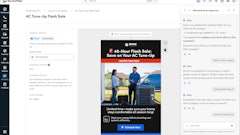Over the last 25 years of advising employers, I’ve learned there are some things managers just don’t like to do. They include the obvious things like firing employees, disciplining them or even evaluating them. But one of the things that surprises me is that managers don’t like to follow the right steps to hire good employees. Instead, they often take shortcuts they shouldn’t. The result is . . . LUZIRS (Lazy, Uninspired, Zero-Interest, Irresponsible, Rude, Slackers). It really is tragic because following a few simple, practical steps in the hiring process means managers would spend less time disciplining and firing employees and find the evaluation process easier and more productive.
Contractors can face this sort of problem because hiring often happens very quickly in order to get "warm bodies" on the jobsite. This often results in shortcuts in the hiring process. Unfortunately, one of the most important steps in the process — conducting an interview that asks the right questions — is often sacrificed in the process. Here are some tips to help make interviews more effective, and at the same time, avoid some of the legal pitfalls associated with the hiring process.
You probably already know about questions you should not ask: race, color, religion, national origin or citizenship, age, sexual preference, marital status, criminal convictions or arrests, disabilities or genetic background, etc. Here are some tips for getting useful information in the interview process.
1. Budget the appropriate amount of time for the interview. You do not need to spend as much time interviewing for a day laborer position as you do for your next CFO. It is still important to ask the day laborer candidate the right questions, but because the requirements for the position are a little simpler and more straightforward, you should not need to take large amounts of time to get the answers you need to make a good hiring decision.
2. Understand what it is you are looking for in an applicant. It is always a good idea to make a note of the key attributes or qualities that you desire in an applicant or have experienced with a great employee. There is certainly nothing wrong with referring to your list of key attributes when formulating questions for a job applicant.
3. Conduct an interview in a considerate and respectful fashion. Although you can never ensure there will not be a distraction, it is probably not a good idea to conduct an interview out on the shop floor or at a jobsite. Instead, try to hold the interview in a location that allows at least a little bit of privacy and ensures that you and the applicant can have a conversation without having to shout at each other.
4. Ask open-ended questions. Try to follow the 80/20 rule, where you talk 20 percent of the time and the applicant talks 80 percent of the time. The goal is to get the applicant to open up and answer questions in a way that tells you something more than what is already in front of you on a job application. You are using a job application, right?!
5. Be a good listener. Do not just write down the answers. You will learn more — and make a better hiring decision — if you listen closely to what the applicant tells you and ask follow-up questions. This lets you probe beyond "pat" answers to get meaningful information from the applicant.
6. Establish a rapport with the candidate. The interview is another opportunity for you to shape the future of the successful applicant and also the overall impression of your company that the unsuccessful applicant will share with his or her friends. The best interviewers leave each and every applicant with a great impression of the company so even those who do not get the job tell their friends that the company is a great place to work.
By following these practical steps, you are much more likely to get information that helps you pick the best candidate for your open position. Because you have asked open-ended questions designed to get the applicant talking to you, and because you appear to be genuinely interested in what the applicant has to say, you are more likely to identify, and screen out, the LUZIRS.



















